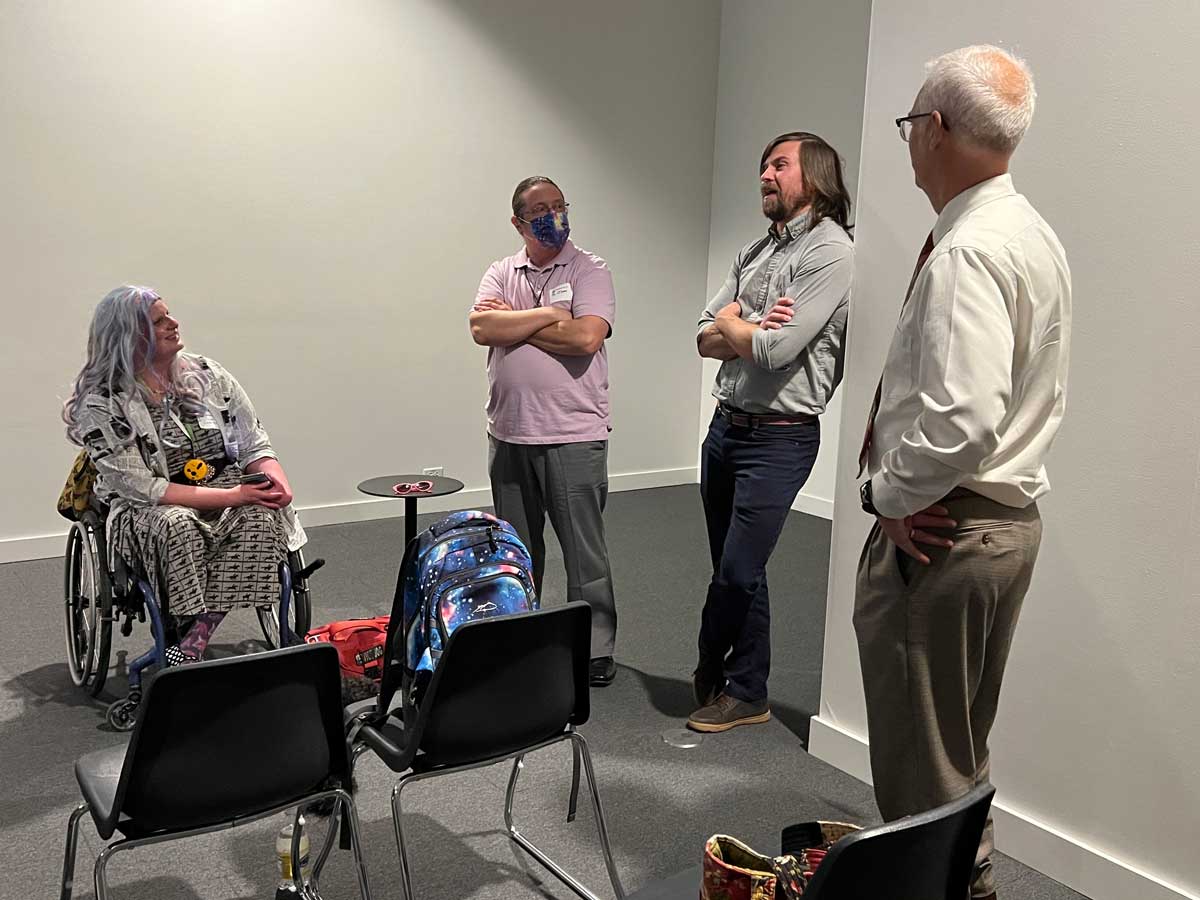Utah State students study crisis communication at Westminster conference
Utah State students study crisis communication at Westminster conference
SALT LAKE CITY — Nine students from Utah State University’s Department of Journalism and Communication gathered with college students from around the region this week to discuss international problems and potential solutions.
The four-day Global Crises and Global Change conference, hosted by Westminster College, comprised five panels of undergraduate students, as well as presentations from professors, discussing topics ranging from gender equality to melting glaciers.
“As undergraduate students we don’t normally get a lot of opportunities to attend these sort of academic conferences,” said Parker Atkinson, one of the Global Crisis Communication class members who attended the event. “Not only were the presentations interesting and informative, but our accompanying discussions were awesome as well.”
The crisis communication students maintained a running dialogue, via a shared Google Doc, throughout the conference in which they discussed the role of communication relevant to the issues being discussed by presenters.
“This was a first-of-its-kind conference, so we didn’t know what to expect,” said journalism professor Matthew LaPlante, who leads the Global Crisis class. “But what I found was that my students used the topics and discussion to spark a really fascinating discussion about the roles and responsibilities of professional communicators during a crisis — and I was proud of how insightful they were.”
“The conference was an interesting and challenging way for our class to explore how to communicate journalistically in a crisis,” journalism student and conference attendee Bianca Pahl said.
Even before one of the presenters — fellow Utah State undergraduate Darren Bingham — had completed his lecture on glacier melt in South America, the class was exploring ways to attack the issue journalistically. LaPlante, who previously has taken Utah State students on international reporting trips to Ethiopia and Cambodia, said he’s eager to facilitate a voyage to Bolivia and Peru.
LaPlante also expressed interest in bringing students to Arizona, where presenter Giancarlo Panagia, a Westminster professor, noted there is a fight over Oak Flat, a sacred region of the Apache Indian tribe in Arizona. Panagia said Oak Flats faces environmentally destructive copper mining after a last-minute rider added to the National Defense Authorization Act transferred the land to Resolution Copper MIning, a subsidiary of the Rio Tinto Group.
“It would be interesting to experience these crises firsthand,” said Nicole Cowdell, a USU journalism student at the conference. “I would love to tell the stories of those affected. The presenters’ passion was very inspiring.”
But coupling that passion with the broader public, the students agreed, will take thoughtful and savvy communicators.
Matthew D. LaPlante
assistant professor of journalism
Utah State University
matthew.laplante@usu.edu
www.mdlaplante.com



